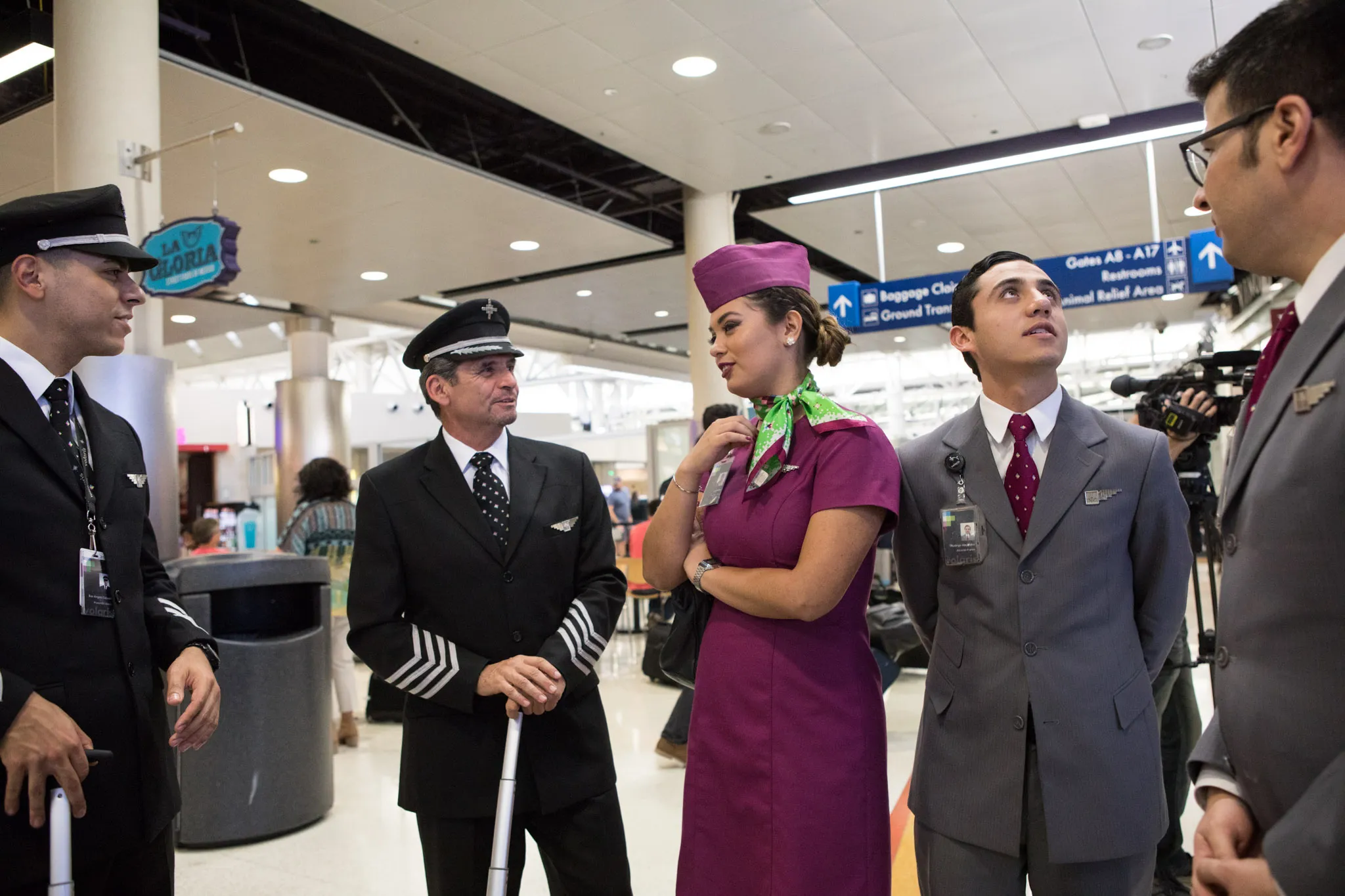Access selected deals available with budget and full-service airlines
Lock any airfare that sounds great. You don’t lose anything if you cancel it
Call us anytime for any assistance. We do not go into hibernation
Your personal and financial information stays secure with us
Volaris, officially Concesionaria Vuela Compañía de Aviación, S.A.B. de C.V., is Mexico’s second-largest airline and a leading ultra-low-cost carrier (ULCC) in Latin America, renowned for its affordable fares, extensive domestic network, and growing international presence. Founded on March 13, 2006, and headquartered in Mexico City, Volaris operates primary hubs at Mexico City’s Benito Juárez International Airport (MEX), Guadalajara International Airport (GDL), and Tijuana International Airport (TIJ), with focus cities in Cancún, León, and Monterrey. Serving over 70 destinations across Mexico, the United States, Central America, and South America, Volaris operates 150 routes with a fleet of 143 Airbus A320-family aircraft, averaging 6 years in age—one of North America’s youngest. Publicly traded on the Mexican Stock Exchange (BMV: VOLAR) and NYSE (VLRS), Volaris is 83.7% owned by institutional investors, with Grupo Televisa and Discovery Americas as key shareholders. In 2024, it carried 31.3 million passengers, achieving a 90% load factor and $3.2 billion in revenue. With a focus on sustainability and customer choice, Volaris’ slogan, “Low prices, high expectations,” reflects its commitment to accessible travel, earning accolades like the 2024 CH-Aviation World’s Third-Youngest Fleet award.

Volaris was established in 2005 by a consortium including Grupo Televisa, Inbursa, Discovery Americas, and TACA Airlines, with Indigo Partners later acquiring a significant stake. It launched operations on March 13, 2006, with a Toluca–Tijuana flight, positioning itself as a low-cost alternative to legacy carriers like Aeromexico. By 2009, Volaris expanded to Los Angeles, its first U.S. destination, leveraging Tijuana’s Cross Border Xpress (CBX) for U.S.–Mexico connectivity. In 2011, it went public on the Mexican Stock Exchange, raising $350 million, and listed on the NYSE in 2013.
The airline grew rapidly, doubling its fleet by 2015 and launching Volaris Costa Rica in 2016 to serve Central America. In 2018, it ordered 80 Airbus A320neos, the largest such deal in Mexico’s history, valued at $9.3 billion. Despite a 2020 revenue drop to $1.1 billion due to COVID-19, Volaris led Mexico’s domestic recovery, carrying 25 million passengers in 2022. In 2023, it expanded U.S. routes, including Denver and Las Vegas, and launched Colombia services in 2024. A 2024 partnership with Frontier Airlines enhanced U.S.–Mexico connectivity, with plans for a joint venture pending regulatory approval. Volaris celebrated its 20th anniversary in March 2026, targeting 35 million passengers annually by 2027.
Volaris operates a fleet of 143 Airbus aircraft, all A320-family models, as of Q1 2025:
The fleet’s average age of 6 years ensures fuel efficiency and reliability. Volaris has 77 A320neo-family aircraft on order, aiming for 200 aircraft by 2030. Maintenance is handled by Volaris’ in-house team at facilities in Mexico City and Guadalajara, certified to international standards. The airline’s all-Airbus strategy reduces operating costs, contributing to its ULCC model.